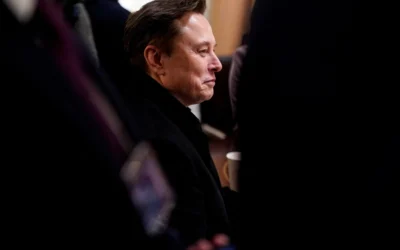Scott Bessent’s Insight on U.S.-China Trade Relations
In the intricate web of global economics, the U.S.-China trade relationship stands out due to its complexity and far-reaching ramifications. Recently, Scott Bessent, renowned for his financial expertise and investment strategy, has made headlines with his nuanced views on ongoing tariff discussions between the two superpowers. His stance diverges sharply from the more aggressive approaches adopted by some within the Trump administration, suggesting a pathway that prioritizes de-escalation over confrontation.
A Hardball Game
The recent history of U.S.-China tariffs can be characterized as a game of hardball—a strategic standoff where both nations attempt to assert dominance over the other, leveraging economic pressure as their primary weapon. Under President Trump, the U.S. imposed substantial tariffs on Chinese imports, aiming to reduce the trade deficit and encourage domestic production. However, this tit-for-tat gazes into the depths of economic stability, impacting not just political relations, but also creating ripples throughout global supply chains.
Trump Administration’s Tough Stance
The Trump administration’s approach has largely been marked by assertiveness. As tariffs climbed to unprecedented levels, many predicted that this form of economic engagement would foster a more favorable trade environment for the U.S. However, Bessent argues, “While imposing tariffs might seem like a short-term remedy, it could lead to long-term consequences that could cripple the very economy we aim to protect.” In essence, the strategy could backfire, as other trading partners prepare to engage in similar tactics, further inflating economic tensions.
Bessent’s Call for Dialogue
Bessent’s expertise shines through when he emphasizes a need for dialogue and negotiation rather than burning bridges with aggressive tactics. He articulates a crucial point: “China and the U.S. are talking, but the discourse must focus on de-escalation. Without reducing tensions, we risk entering into an extended conflict that could define a generation of economic relations.”
In Bessent’s view, any productive conversation must stem from a recognition of shared interests and mutual respect. He contends that both nations have a lot to gain by working together rather than against each other. As such, greater collaboration could pave the way for a more stable exchange of goods and services, ultimately benefiting consumers and businesses alike.
The Economic Landscape
This ongoing trade conflict has generated a ripple effect across global markets, influencing everything from stock prices to commodity trading. The uncertainty surrounding tariff discussions induces volatility that can lead to speculation and knee-jerk reactions within financial markets. Investors are cautious; large capital flows into and out of markets indicate anxiety about future profitability amid the shifting sands of trade policy.
For instance, companies that rely heavily on the import of Chinese goods are facing increased costs due to tariffs. Many firms have begun reassessing their supply chains, seeking alternative sources, often at the cost of efficiency and profit margins. Bessent’s approach advocates for foresight, anticipating how these economic ripples may affect businesses across different sectors, particularly in technology, agriculture, and consumer goods.
The Cost of Conflict
The escalating tensions could potentially culminate in a significant economic downturn for both countries as well as the world economy. Bessent emphasizes the cumulative costs of such confrontations: an impending slowdown, disrupted markets, and increased consumer prices. “When tariffs are levied, it’s not just the corporations that feel the pinch; the average consumer often bears the brunt of these decisions when they shop for everyday goods, ” he stated during a recent panel discussion. These economic realities underscore the importance of maintaining a trading relationship that remains open and constructive, rather than combative.
Long-Term Implications
As Bessent elucidates, the broader implications of the tariff discussions extend beyond immediate economic concerns. They touch upon national security, technological advancements, and global influence. The relationship between the U.S. and China fundamentally shapes international dynamics—be it through military alliances or economic partnerships. The potential deterioration of ties could encourage other nations to reevaluate their alliances, potentially leading to a more fragmented global economy.
This environment of fear and uncertainty has prompted Bessent to advocate for a refined approach going forward. “We need to consider the long-term implications of our actions today. A sustainable future hinges on collaboration, not on continuous confrontation.”
Negotiation as the Path Forward
Facilitating a negotiated settlement, Bessent argues, requires not just concessions, but also a shift in mindset that values collaboration over competition. By fostering a climate of trust and understanding, both countries could explore avenues for cooperative agreements that address mutual concerns—from intellectual property rights to technology transfer issues.
Bessent’s perspective aligns with the growing calls from various sectors—including the business community—that seek to balance assertiveness with diplomacy. This balanced approach not only champions economic interests but also prepares both nations to address shared global challenges such as climate change, public health, and regional stability.
A Hopeful Future
Despite the current climate of uncertainty, Bessent remains optimistic about the possibility of a resolution through cooperative engagement. He iterates the significance of embracing dialogue in an era characterized by noise and conflict. “It is essential for the leaders of both nations to shift their focus from punitive measures to collaborative frameworks. Only then can we unlock the full potential of what U.S.-China relations can achieve.”
Conclusion
Scott Bessent’s interpretation of the ongoing trade negotiations highlights the delicate balance between assertive tactics and the necessity of de-escalation. While the Trump administration’s hardline approach is rooted in immediate economic concerns, Bessent’s insights echo the collective desire for sustainable, long-term resolutions. In this critical juncture of U.S.-China relations, his advocacy for dialogue may not only yield favorable outcomes for both nations but also serve as a guiding principle in the ongoing effort to navigate through turbulent economic waters.







